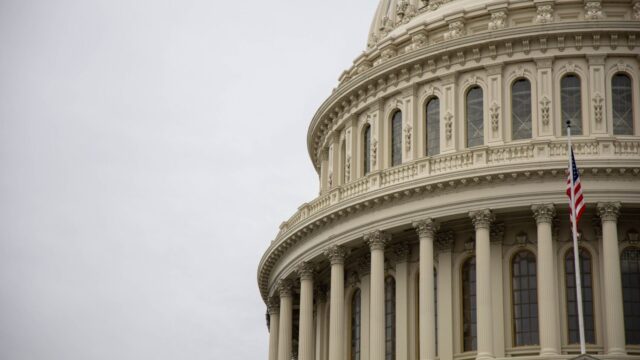BCHC Joins Letter Calling on Increased Funding for CDC Climate and Health Program
April 2022

April 8, 2022
The Honorable Rosa DeLauro
Chair
House Appropriations Subcommittee
on Labor, Health and Human Services,
Education, and Related Agencies
Washington, DC 20515
The Honorable Kay Granger
Ranking Member
House Appropriations Subcommittee
on Labor, Health and Human Services,
Education, and Related Agencies
Washington, DC 20515
The Honorable Patty Murray
Chair
Senate Appropriations Subcommittee on Labor, Health and Human Services,
Education, and Related Agencies
Washington, DC 20510
The Honorable Roy Blunt
Ranking Member
Senate Appropriations Subcommittee on Labor, Health and Human Services,
Education, and Related Agencies
Washington, DC 20510
Dear Chairwoman DeLauro, Chairwoman Murray and Ranking Members Granger and Blunt:
The undersigned public health organizations urge you to increase funding for the Centers for Disease Control and Prevention’s Climate and Health Program to $110 million in the FY 2023 Labor, Health and Human Services, Education and Related Agencies Appropriations bill. This funding is necessary to help state and local health departments prepare and protect their communities from the health threats posed by climate change that they are already experiencing.
Climate change is a health emergency. Urgent action to reduce greenhouse gases is needed to prevent the impacts from reaching catastrophic levels, but we must recognize that health is being impacted now. The public health workforce needs adequate resources to identify risks and develop and implement climate adaptation action plans to protect communities across the country. CDC’s Climate and Health Program is the only federal program that helps states, cities, territories and Tribes prepare for and respond to the specific local health impacts of climate change.
These health impacts threaten the patients and communities that our organizations serve. Broadly speaking, these impacts include increased spread of vector-borne diseases like Lyme Disease, increased risk of chronic disease morbidity and mortality due to degraded air quality from ozone pollution and wildfire smoke, hotter temperatures, extreme weather events and longer allergy seasons. Communities must have the resources necessary to understand their specific current and anticipated health impacts of climate change and take steps to protect the public’s health.
The Climate and Health Program currently funds nine states, two cities and three Tribes. More states and cities used to receive funding, but after years of no increases in funding, the decision was made to fund fewer states at a more sufficient level. More adequate funding could restore former programs and create new ones. Examples of the projects supported by this program include: the development of an environmental equity tool in Wisconsin to better pinpoint the most impacted communities from pollution, climate change and socioeconomic factors; a resilience planning toolkit in Oregon that uses lessons learned from local partners to guide local health departments in their response; the identification of specific communities at greatest risk due to sea level rise in North Carolina; and a weatherization health technical report in Vermont that shows how weatherization such as insulation and ventilation can better protect health and lower energy costs.
The Climate and Health Program has been hindered in its ability to rise to its full – and necessary – potential due to insufficient funds. Increasing funding for this program to $110 million would serve three critical purposes. First, it would allow CDC to fund all states and territories, becoming a national resource and financial support system for states as they prepare for and respond to the health impacts of climate change. Second, it would improve the program’s ability to fill gaps in climate surveillance by better integrating weather and ecological system data with health outcomes. Third, it would allow CDC to offer more scientific and epidemiological studies and resources on climate change and the health outcomes stemming from it. Additionally, CDC would be better equipped to evaluate the grantees’ work to identify and be able to share best practices with communities nationwide.
Americans today experience negative health impacts due to climate change. Further investment in the Climate and Health Program will help communities across the country better prepare and protect their residents. Thank you for considering our recommendation and we look forward to working with you throughout the appropriations process.
Sincerely,
Alliance of Nurses for Healthy Environments
Allergy & Asthma Network
American Academy of Family Physicians
American Academy of Pediatrics
American College of Physicians
American Heart Association
American Lung Association
American Thoracic Society
American Psychological Association
American Public Health Association
Association of American Medical Colleges
Association for Prevention Teaching and Research
Association of Public Health Laboratories
Association of Schools and Programs of Public Health
Association of State and Territorial Health Officials
Big Cities Health Coalition
Children’s Environmental Health Network
Climate for Health
Climate Psychiatry Alliance
Council of State and Territorial Epidemiologists
Health Care Without Harm
March of Dimes
Medical Students for a Sustainable Future
National Association of County and City Health Officials
National Environmental Health Association
Prevention Institute
Public Health Institute
The Society of Thoracic Surgeons
Trust for America’s Health
Research!America